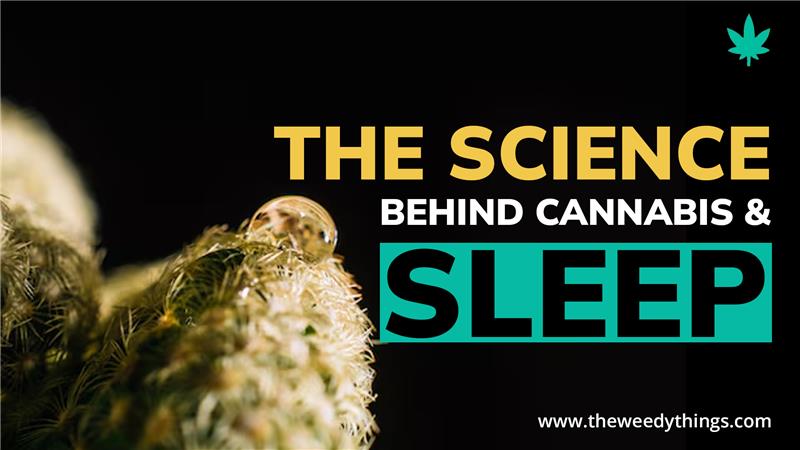Cannabis has been used for centuries as a natural sleep aid. With the rise of medical cannabis, many people turn to it to manage insomnia, sleep disorders, and improve overall sleep quality. But how exactly does cannabis affect sleep? Let’s explore the science behind it.
How Cannabis Affects Sleep
1. The Role of THC and CBD
- THC (Tetrahydrocannabinol): The psychoactive compound in cannabis that promotes sleep by reducing sleep latency (the time it takes to fall asleep). However, it may suppress REM sleep, affecting dream cycles.
- CBD (Cannabidiol): A non-psychoactive compound that helps with relaxation, anxiety reduction, and balancing sleep cycles. It is beneficial for people who experience stress-related insomnia.
2. Impact on Sleep Cycles
Cannabis affects different sleep stages, particularly:
- NREM (Non-Rapid Eye Movement) Sleep: Cannabis may help prolong deep sleep, allowing for better rest and recovery.
REM (Rapid Eye Movement) Sleep: THC reduces REM sleep, which may be helpful for those with PTSD who experience nightmares but could lead to less dreaming.
3. Cannabis as a Treatment for Insomnia
Studies suggest that cannabis can be effective for individuals struggling with insomnia by:
- Reducing the time it takes to fall asleep
Improving sleep quality
Decreasing nighttime awakenings
Best Cannabis Strains for Sleep
1. Indica vs. Sativa for Sleep
- Indica: Typically more sedative, making it the best choice for sleep.
- Sativa: Can be more energizing, often not recommended before bedtime.
Hybrids: Some hybrids contain relaxing properties suitable for sleep.
2. Top Strains for Sleep
Granddaddy Purple: High in myrcene, a terpene known for its sedative effects.
Northern Lights: A powerful indica that promotes deep relaxation.
Bubba Kush: Helps with stress relief and induces sleepiness.
Harlequin (CBD-rich): Provides relaxation without psychoactive effects.
Methods of Cannabis Consumption for Sleep
1. Smoking or Vaping
- Pros: Fast-acting effects, easy to control dosage.
- Cons: Shorter-lasting effects, potential lung irritation.
2. Edibles (Gummies, Tinctures, Beverages)
Pros: Long-lasting effects, ideal for uninterrupted sleep.
Cons: Slow onset (30 minutes to 2 hours), making timing important.
3. CBD Oils and Tinctures
Pros: Non-intoxicating, easy to adjust dosage.
Cons: Effects vary per person, may not be as sedating as THC.
Potential Risks and Considerations
While cannabis can be beneficial for sleep, long-term use may:
Lead to dependency for sleep.
Cause withdrawal symptoms like sleep disturbances if discontinued.
Reduce REM sleep, which could impact memory and cognition over time.
Conclusion
Cannabis can be a powerful tool for improving sleep when used correctly. Understanding the effects of THC and CBD, choosing the right strains, and selecting the best consumption method can enhance sleep quality while minimizing risks. As always, consult with a healthcare provider before using cannabis for sleep-related issues.
Frequently Asked Questions
Cannabis can help with sleep, but it is not a cure for chronic insomnia. It should be used as part of a broader sleep hygiene routine.
THC is more sedative, but CBD can help with anxiety-related sleep problems. A combination may work best.
Yes, THC reduces REM sleep, leading to fewer dreams or suppressed dreaming.
Smoking or vaping works within minutes, while edibles take 30 minutes to 2 hours. Plan accordingly.
Yes, prolonged use can lead to tolerance, requiring higher doses over time. Taking occasional breaks can help reset tolerance.




